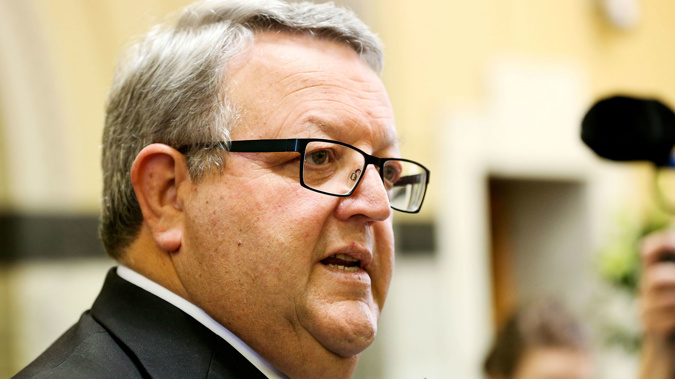
Foreign Minister Gerry Brownlee met his Australian counterpart Julie Bishop over the treatment of Kiwi expats in Sydney this morning.
At a press conference afterwards, Bishop said the relationship between the nations is "one of the closest that could exist" between two countries, and recent high level visits have underscored this.
Bishop said they had discussed how to work together to promote peace and security in the region, and further afield in Iraq and Afghanistan.
She had recently returned from Anzac commemorations, and "over 100 years later" the bond remained.
"Gerry and I discussed a number of areas where Australia and New Zealand's view of the world aligns."
Brownlee said it was a privilege to be in Australia for his first outing as Foreign Minister.
"We have very very strong trading relationships," Brownlee said. "We are both very strong voices for free trade."
Brownlee said discussions today were "quite easy" because of the friendship between the countries and recent issues had to be put in context of the long relationship.
"These are not things that can't be sorted out."
SEE ALSO: Brownlee in Aus to seek clarity on uni fee hike for Kiwi expats
Brownlee said much progress had been made. He said Prime Minister Bill English had been clear that Australia was a good friend, despite recent comments about changes in Australia.
"The reality is that we are separate countries."
Bishop said recent announcements had been made in the context of the Australian Budget. The pathway to citizenship arrangements stands.
"New Zealanders across the board will have greater opportunities to access the Australian higher education system."
Bishop said officials will have "even closer" engagement on how domestic policies could affect citizens of each country.
Bishop said she expected more New Zealanders would seek to study at university in Australia, "but it's not a free service".
Asked by the Herald about concern of further changes, including making New Zealand expats pay for their children to attend school, Bishop said that was "speculation".
Bishop said the Australian Budget would be delivered next Tuesday. Today's discussion about how New Zealanders would be affected.
The New Zealand Government has reacted angrily to proposals to raise fees in universities, which were announced three days ago with little warning.
Brownlee met Bishop to discuss not only the education proposals but also the broader decline of the transtasman relationship.
Under the new university fee proposals, Australian permanent residents from all countries, including New Zealand, will pay full fees; an average increase of A$8000 ($8600) to A$9000 a year. About 6000 New Zealanders are in this category.
Immigration researchers have also raised fears about what next steps could be, including whether Kiwi expats could be charged to have their children attend Australian state schools.
Some Australian states charge some skilled foreigners between $3000 and $5000 per child a year to attend public schools.
Take your Radio, Podcasts and Music with you









